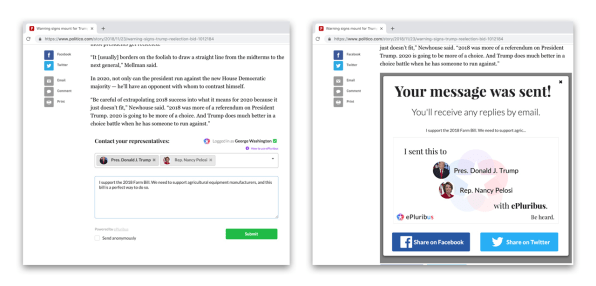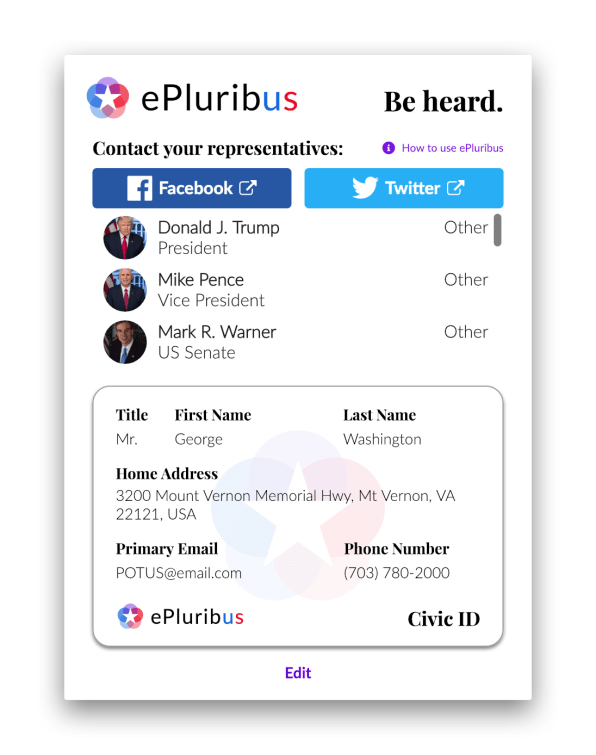The next time you talk about politics on Twitter, Facebook, or in the comment section of a news article, you can click a button to turn your post into an official message to Congress. A new Chrome extension called ePluribus lets you verify that you’re a constituent of particular representatives, and then sends them your opinion directly.
“The idea is that people are already talking about politics on social media and news sites, but it doesn’t really matter right now because it’s in a bubble,” says Liam McCarty, who cofounded ePluribus with brother Aidan McCarty. “It doesn’t get to the decision-maker. And so we are effectively providing an extra layer over that. You can both tell your friends what you think, but also get back to your representatives so that they can act on it.”
The startup will verify that someone lives in a particular district by mailing them a card with a verification code. It’s a slightly complex way to tackle a big problem with how we interact with our representatives: Right now, it’s simple for anyone to pretend to be a constituent when filling out a contact form on a representative’s website. The voices of actual constituents can be lost.

“The systems at the moment are incredibly vulnerable to being exploited by people who either have a lot of money to spend or have interests that aren’t necessarily aligned with the general public,” says McCarty. While researching the problem in D.C., the founders met someone who ran what he called a “black magic” PR firm. “Essentially, he said, ‘Somebody will pay me $1 million and the next day my job is to create a fake grassroots movement.’ He would do that through fake Facebook profiles, fake messages to representatives, fake phone calls, et cetera.” In 2017, out of 22 million messages sent to the FCC about net neutrality, 94% were fake or submitted multiple times.

When someone uses the ePluribus Chrome extension, the representative gets a message as they would through their official form, but with an explanation that the sender has been verified as a constituent. (The system also makes it possible for someone to comment anonymously, but with the assurance that they vote in the representative’s district.) It also offers some context–if someone was commenting on an article, for example, the message arrives with a link back to the article. The startup will soon also offer an app. The extension currently supports comments on news articles at 14 websites, but site owners can also use an embeddable widget to add it to more.
Making it easier to comment may make it more likely that more people engage. “There’s no reason that you should have to go to some representative contact form after you’ve read a New York Times article,” says Aidan McCarty. “You should be able to do it directly from the page where you’re already thinking about it… Our long-term vision is building a more secure, engaged democracy, and we think that this is the first step towards that.”
(33)